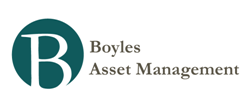A Hint of Hype, A Taste of Illusion – By Leonard Mlodinow
Found via Simoleon Sense.
They pour, sip and, with passion and snobbery, glorify or doom wines. But studies say the wine-rating system is badly flawed. How the experts fare against a coin toss.
…
Despite his studies, Mr. Hodgson is betting that, like the French, American consumers won't be easily converted to the idea that wine experts are fallible. His winery's Web site still boasts of his own many dozens of medals.
"Even though ratings of individual wines are meaningless, people think they are useful," Mr. Greene says. He adds, however, that one can look at the average ratings of a spectrum of wines from a certain producer, region or year to identify useful trends.
As a consumer, accepting that one taster's tobacco and leather is another's blueberries and currants, that a 91 and a 96 rating are interchangeable, or that a wine winning a gold medal in one competition is likely thrown in the pooper in others presents a challenge. If you ignore the web of medals and ratings, how do you decide where to spend your money?
One answer would be to do more experimenting, and to be more price-sensitive, refusing to pay for medals and ratings points. Another tack is to continue to rely on the medals and ratings, adopting an approach often attributed to physicist Neils Bohr, who was said to have had a horseshoe hanging over his office door for good luck. When asked how a physicist could believe in such things, he said, "I am told it works even if you don't believe in it." Or you could just shrug and embrace the attitude of Julia Child, who, when asked what was her favorite wine, replied "gin."
As for me, I have always believed in the advice given by famed food critic Waverly Root, who recommended that one simply "Drink wine every day, at lunch and dinner, and the rest will take care of itself."
………………..
Related book: The Drunkard's Walk: How Randomness Rules Our Lives
Related previous post:
- “this Bird Thinks!”
A BIG thanks to Peter for passing this story/excerpt along. From the book Fear of Physics by Lawrence Krauss:No two physicists could have been more different than Dirac and Feynman. As much as Feynman was an extrovert, so much was Dirac and introvert....
- Us Downgrade Heralds A New Financial Era - By Mohamed El-erian
There will be endless debate on whether S&P, the rating agency, was justified in stripping America of its AAA rating and — adding insult to injury — even attaching a negative outlook to the new AA+ rating. But this historic action has now taken...
- The Man Who Called The Financial Crisis—70 Years Early - By Jason Zweig
Found via Simoleon Sense.Decades before anybody had ever heard of a mortgage derivative, an economist named Melchior Palyi predicted key causes of the 2008-2009 financial crisis with precision that makes a modern reader's hair stand on end.His warnings...
- Michael Mauboussin: Untangling Skill And Luck
Found via Simoleon Sense. For almost two centuries, Spain has hosted an enormously popular Christmas lottery. Based on payout, it is the biggest lottery in the world and nearly all Spaniards play. In the mid 1970s, a man sought a ticket with the last...
- Hollywood Success: Luck Or Skill? - 2006 Article By Leonard Mlodinow
The magic of Hollywood success—how can one account for it? Were the executives at Fox and Sony who gambled more than $300 million to create the hits “X-Men: The Last Stand” and “The Da Vinci Code” visionaries? Were those at Universal responsible...

